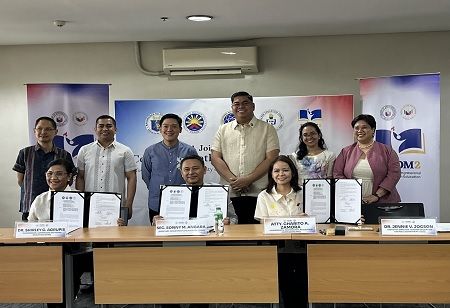- New national registry to identify and monitor legitimate teacher education programs.
- Only government-recognized courses will qualify graduates for teaching licenses and public sector jobs.
- Reform aims to end 'diploma mills' and strengthen teacher quality across the country.
In a major education reform, the Philippine Department of Education (DepEd), Commission on Higher Education (CHED), and Professional Regulation Commission (PRC) have jointly launched a national registry to ensure only accredited and high-quality teacher education programs are recognized nationwide.
The three agencies formalized the initiative through a Joint Memorandum Circular (JMC), witnessed by the Second Congressional Commission on Education (EDCOM2) and the Teacher Education Council (TEC). The system aims to eliminate fake and low-quality degree programs, often referred to as 'diploma mills', that have long damaged the reputation of Philippine higher education.
Dr. Shirley Agrupis, CHED Chairperson, said, the registry “protects students from fraudulent programs” and ensures that all degrees carry “integrity and recognition.” Under the new system, only programs with Certificates of Program Compliance (COPC) or Government Recognition (GR) will be accepted for professional licensure, employment, and promotion.
PRC Chairperson Atty. Charito Zamora emphasized that graduates from unaccredited programs will no longer be allowed to take the Board Licensure Examination for Professional Teachers (BLEPT) unless granted special permission during the transition period.
Also Read: RePlay Launches First Summit to Promote Play in Early Learning
Education Secretary Sonny Angara stressed the reform’s goal, “We don’t lack teacher applicants; we lack quality outcomes”. The initiative, he said, will help shift focus from teacher quantity to teacher competency.
The registry marks a major step toward aligning teacher training, licensure, and employment under one quality framework to strengthen the country’s education system.

